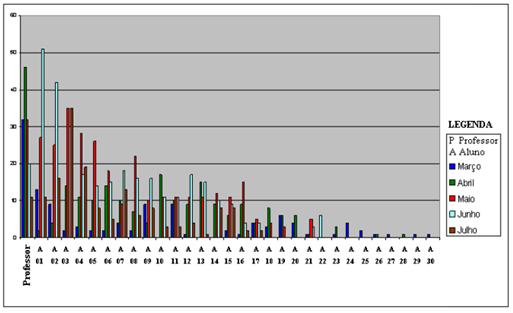The proposed paper discusses the concept of collaborative learning, taking as its starting point the concept of Zone of Proximal Development (ZPD), formulated by Vygotsky (1978). By understanding that the process of collaboration in a learning system is done in a perspective beyond the one described for the ZPD. I argue then, the concept of capabilities that are within a highly complex system is marked by the emergence of collaborative attitudes due to the diversity (Holland, 1995, van Lier, 2004) and power redundancy (David and Sumara, 2006) characterizing social systems. To show that dynamics, take for analysis, 1,370 e-mails exchanged by the participants (teacher and students) of a virtual learning community. The analysis showed that the collaborative process was configured in a proactive community property, or an event that emerged in the interstices between the predictable and unpredictable system. The collaborative practices among participants in the studied system is configured a system property, because through them the system under study is revealed even more dynamic and complex.
system; collaboration; distributed competence

 Thumbnail
Thumbnail
 Thumbnail
Thumbnail
 Thumbnail
Thumbnail


